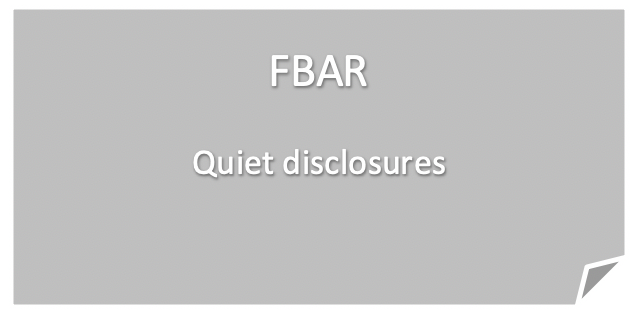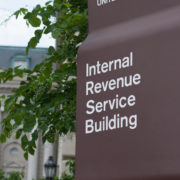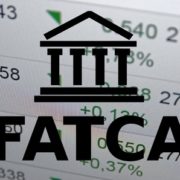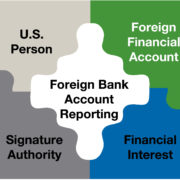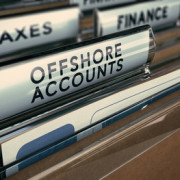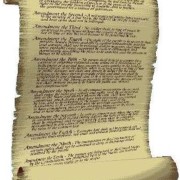Quiet Disclosure Guilty Plea
Florida man pleads guilty to tax evasion and hiding funds around the world
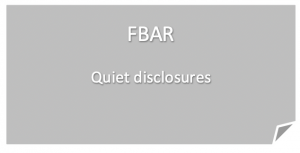 In April 2020, a Florida man pleaded guilty to tax evasion and the willful failure to file FBAR’s. What makes this case particularly interesting is that the taxpayer made use of a “quiet disclosure” rather than entering into the Offshore Voluntary Disclosure Program (OVDP). This is a classic case of greed on steroids.
In April 2020, a Florida man pleaded guilty to tax evasion and the willful failure to file FBAR’s. What makes this case particularly interesting is that the taxpayer made use of a “quiet disclosure” rather than entering into the Offshore Voluntary Disclosure Program (OVDP). This is a classic case of greed on steroids.
Experienced tax attorneys will usually discourage their clients from making quiet disclosures. However, some practitioners may be tempted to recommend using a quiet disclosure to help close the deal with the client. An uninformed or greedy client will invariably opt for the least costly strategy. Unfortunately, these same practitioners routinely fail to provide the client with an explanation of the downside risks associated with making a quiet disclosure.
The following discussion is limited to the defendant’s foreign financial accounts, his failure to file FBAR’s and his unsuccessful attempt at making a quiet disclosure. If you interested in the tax evasion portion of the case you can click on the link hereand you will be linked to the Department of Justice, Tax Division, website.
Case background
–The taxpayer owned and operated a U.S. business that bought U.S.-made agricultural machinery and parts and sold them throughout the world. The taxpayer failed to not only file business, personal and employment income tax returns but also failed to pay corporate, employment or individual income taxes. Although the taxpayer never received a salary, he certainly was living large. In addition to the business paying all of his personal expenses, the defendant was also able to siphon off significant amounts of cash, which he used for a variety of reasons. In total, the taxpayer failed to report more than $7.7 million in income, resulting in a total tax loss to the Government of over $2.7 million.
-From 2007 to 2011, the taxpayer transferred 5.8 million from the company’s bank accounts to foreign financial accounts. The taxpayer maintained these foreign financial accounts in Croatia, Germany, Serbia, and Switzerland from 2008 to 2015. Despite knowing that he had an obligation to report these accounts on FinCEN Form 114 (FBAR), the defendant kept these accounts secret in order to avoid IRS detection.
–In 2010, an account the taxpayer held at Credit Suisse in Zurich, Switzerland reached a year-end high value of $6,177,586. The taxpayer used the Credit Suisse account to fund the purchase of a $1,350,000 yacht and a $1,650,000 waterfront home in Florida.
–In 2015, Credit Suisse closed the taxpayer’s account in Switzerland and advised him to enter the IRS’s Offshore Voluntary Disclosure Program (OVDP). To provide some context, the OVDP was terminated in September of 2018 and replaced that same year with the Voluntary Disclosure Practice rules.
–The taxpayer failed to heed the Bank’s advice and elected not participate in the OVDP. The last iteration of the OVDP provided taxpayer’s with undeclared offshore accounts the opportunity to come clean in exchange for the prospect of avoiding criminal prosecution. Under the OVDP, participating taxpayers were required to:
- File 8 years of delinquent or amended tax returns
- File FBARS for 8 years.
- Submit his or her returns and copies of the electronically filed FBAR, together with a penalty worksheet to the OVDP unit of the IRS.
- Pay any outstanding income tax, together with a 20% accuracy penalty and interest.
- Pay a one-time miscellaneous offshore penaltyequal to 27.5% of the highest aggregate account balance(s) in any one disclosure year.
In exchange for making these disclosures and paying all taxes, penalties and interest as well as the miscellaneous offshore penalty, the taxpayer and IRS would enter into a “Closing Agreement” (Form 906). A Closing Agreement effectively bars any additional claims by the IRS or the taxpayer for any of the years included in the disclosure period.
The taxpayer’s quiet disclosure consisted of filing several delinquent tax returns with the hope that the filings would fly under the radar, and the taxpayer would avoid paying income taxes, penalties and interest as well as the miscellaneous offshore penalty. Ironically, the taxpayer did not file any FBAR as part of his quiet disclosure.
Findings of the case
As it turns out, the tax returns filed by the defendant were materially false in several respects. First, the income tax returns disclosed only the taxpayer’s Credit Suisse account but failed to disclose his other foreign financial accounts. Second, the income tax returns submitted by the taxpayer failed to include the income the defendant earned from his company as well as the foreign source income earned from the taxpayer’s undisclosed foreign financial accounts.
Making a quiet disclosure, even in cases where the taxpayer files all FBAR’s in addition to his or her amended or delinquent income tax returns, is strong evidence of the taxpayer’s intent to prevent or hinder the IRS from detecting the existence of the taxpayer’s foreign financial accounts. It also demonstrates the taxpayer’s intent to avoid the assessment and payment of FBAR penalties.
Takeaway from the defendant’s guilty plea
If you make a quiet disclosure and are caught, there are significant financial consequences, even if you are fortunate enough to avoid criminal prosecution. The use of a quiet disclosure will invariably result in the assessment of the Willful FBAR Penalties which are substantial. Any hope of merely paying the Non-Willful FBAR penalty is out the window. In addition, if you are discovered, you will have to pay the outstanding tax, as well as the related penalties and interest on any unreported income. Among the IRS penalties, you could be subject to the 75% Civil Fraud Penalty.
Where criminal risk is minimal or non-existent, it may be possible to utilize the foreign or domestic streamlined procedures, thereby eliminating or limiting the FBAR penalty to a onetime 5% penalty.
While some taxpayers have been successful in avoiding detection by the IRS by using a quiet disclosure, you do not want to be the last person without a chair when the music stops. If you have undisclosed foreign financial accounts and foreign income, don’t let greed cloud your judgment. Nor should you make a decision based upon any potential savings in legal costs. Take the time to meet with an experienced and knowledgeable tax attorney to see what your options are. If any practitioner mentions the use of a quiet disclosure as a potential disclosure strategy, run like hell!

